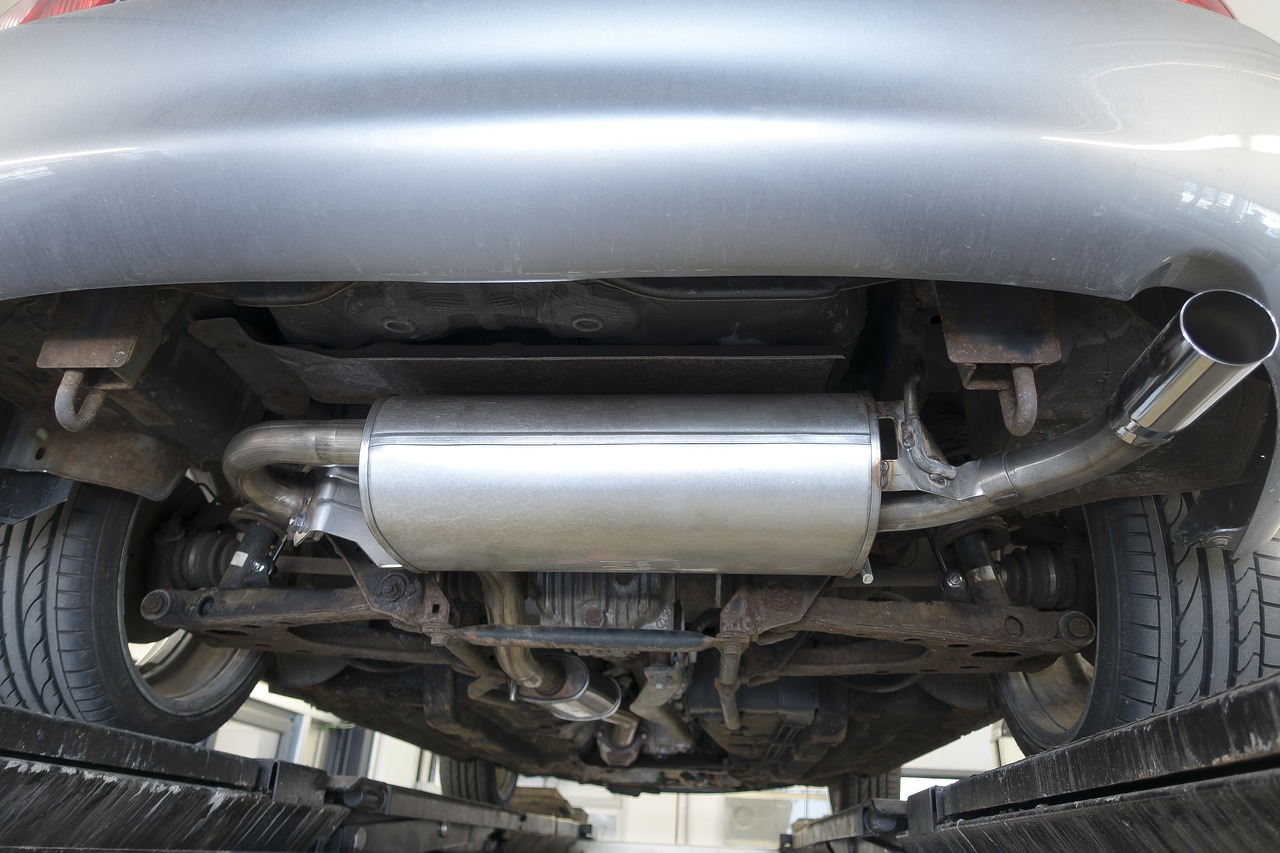“It’s always best to make sure you’re buying the right exhaust system for your car. If you put the wrong one on, it will not only be inefficient but could also cause damage.”
“The right type of sound should come out when your vehicle idles – if not, it could indicate something is blocking airflow through the system like leaves and dirt getting stuck in between valves.”
“For example, putting a catalytic converter-equipped exhaust onto an engine without a catalytic converter can ruin both systems.” “A loud muffler is another sign that something may be wrong. If there are any cracks or holes in the pipes or muffler, this means gas isn’t flowing well and pressure is building up inside.”
As soon as you notice this problem, it is important to have your mechanic inspect your vehicle right away for any signs of trouble. Don’t wait until something goes wrong because there are many symptoms that may indicate an issue with your exhaust system.
How to know you put the wrong exhaust
A common mistake that many people make is purchasing the wrong exhaust system for their car. When they’re shopping, it’s easy to get overwhelmed by all of the different options and not know what will work best. Luckily, there are some ways you can tell if you’ve chosen a faulty exhaust system. Here are some signs that your new purchase may be defective:
- The car sounds louder than before after installation or has more rattling noises than before
- You notice an unpleasant smell coming from the tailpipe after driving
- There is no improvement in gas mileage after installing the new exhaust system
- The performance of your engine feels less responsive and powerful than before installation – even though it was advertised as being “
Causes of putting the wrong exhaust on a car
Terrible smell
Inhaling exhaust is never a good idea. In fact, it can lead to serious health complications such as lung disease and reproductive issues for men or women respectively! If your car smells like bad eggs or sulfur – this means there’s an issue with its catalytic converter (the part of the muffler system that breaks down unburned fuel).
Horrible noise
Your vehicle should not make loud or rattling noises when accelerating. If it does, you likely have a leak in the muffler and/or an exhaust pipe issue Other potential causes for these types of sound include engine trouble.
Reduced fuel economy
If you’re noticing that your engine is struggling more and getting burned out just to operate, there may be an issue with the exhaust system. This can put a lot of strain on our vehicles- so it’s important not only for gas efficiency but also for safety.
Poor performances
Using a gas-powered engine for running an automatic transmission can have its drawbacks. The backpressure from the exhaust system is necessary for your car to run right, but if there’s a significant leak in this crucial area of pipes and hoses then it could affect performance as well causing spitting or sputtering on takeoff with less power going around corners at higher speeds before finally stopping altogether because enough air just never gets into those cylinders anymore.
Toxic gases
A damaged muffler doesn’t always indicate a problem with your overall exhaust system, so there’s probably not anything wrong. That said, this is something you should get fixed if possible because even without an exhaust leak the carbon monoxide from it can enter your car and make things dangerous for both driver(s) inside as well as any pedestrians walking alongside or behind them at all times during operation of the vehicle.
Damage environment
A wrong exhaust could put the environment in danger. It’s important to choose wisely, as any pollution or dangers that arise from your vehicle can have an adverse effect on air quality for those around you both near and far away.
How to avoid the wrong exhaust
If you are in the market for a new exhaust system, you need to be careful about what type of exhaust system is best suited for your car. If not, then it could result in an expensive or dangerous mistake. Here are some common mistakes that people make when choosing their car’s exhaust system: you can check the MagnaFlow exhaust for your car which is one of the best in the market.
- Check compatibility: They buy an aftermarket part without considering compatibility with their vehicle’s engine and emissions equipment.
- Avoid wrong parts: They install the wrong parts which leads to premature wear on other parts of the automobile or can even cause engine failure etc.
- Choose a stock or OEM exhaust: A stock or OEM exhaust system is one where the same pipe diameter all the way from the engine manifold to the tailpipe. These systems are often quiet with minimal power increase because they don’t produce much back pressure.
- A performance-oriented aftermarket exhaust: It will have several different diameters along its length which can create more backpressure but also give better performance gains at higher RPMs.
- Emissions testing: The exhaust system in your car is a big part of allowing you to legally drive it. If something goes wrong with this, then be prepared for the worst: no passing emissions tests and thus not being able to use your vehicle until repaired or replaced.

